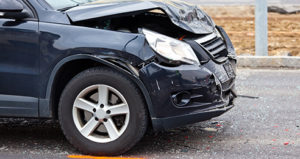In an Auto accident? Who Should Be Paying Your Bills Right Now?
 You were just in a car accident. The medical bills are piling up and you do not want your bills to go into collections and ruin your credit. You would assume that the other driver’s insurance should be taking care of these bills as you incur them. Unfortunately, that is not the way it works.
You were just in a car accident. The medical bills are piling up and you do not want your bills to go into collections and ruin your credit. You would assume that the other driver’s insurance should be taking care of these bills as you incur them. Unfortunately, that is not the way it works.
In Illinois, the insurance company for the person who caused the accident (and your injuries) is not required to pay your medical bills piecemeal. Stated differently, the other driver’s insurance company will not pay your bills as you receive them. They will make an offer of settlement which includes your medical bills once a demand is submitted. Often, the insurance company will offer less than the medical bills because of some suggestion that they did a cost assessment which suggests you were over billed for services.
So how do you get your bills paid while waiting for your case to resolve? The first source you should consider is your health insurance. Why? When your health insurance carrier pays a medical bill, it almost certainly gets a provider discount. Under Illinois law, you are entitled to payment of your full medical bill, not just what insurance paid. While your health insurance carrier will almost certainly demand reimbursement out of any settlement you receive, if you have an attorney, they must automatically reduce the reimbursement amount by one-third (1/3) (unless the plan is a self-insured plan under a federal statute called ERISA). For example, let’s say you have medical bills totaling $10,000. Your health insurance paid $6,000 after discounts. Assuming you have an attorney, you only have to reimburse your health insurance carrier $4,000.
If you do not have health insurance or health insurance refuses to pay for some reason, the next source to look to is your own car insurance. If you have full coverage on your vehicle, you should have medical payments coverage up to a certain amount. Your car insurance medical payments coverage will pay any medical bills up to the limits you have for that particular coverage. If you have an attorney working on the case, your car insurance carrier must reduce their reimbursement amount by the same one-third (1/3) as health insurance stated above. Why not use your car insurance over your health insurance? Because unlike your health insurance carrier, your car insurance carrier does not get discounts when paying the bills.
The last avenue if you neither have health insurance nor medical payments coverage is to request that the medical provider put a lien on the case. When a lien is put on a case, it means that the medical provider must be reimbursed out of the settlement. Typically, this will help you avoid having your medical bills put into collections. Your attorney can also try and negotiate a reduction of the bills.
Being injured in an accident is bad enough. You should not have the added stress of trying to figure out how to pay your medical bills after a car accident and protect your good credit standing. If you have been in an accident, you should contact a personal injury attorney for a free consultation. The attorneys at Woodruff Johnson & Evans have several years of experience dealing with the exact issues detailed above.
